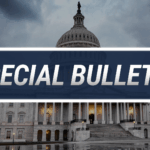With reimbursement for telehealth therapy being held up, providers are faced with a troublesome choice.
This is going to be controversial, but there are times when the smartest course is to disregard the Centers for Medicare & Medicaid Services (CMS) guidance. In addition, in some cases, it is better to make a decision about whether to engage in activity without seeking permission.
During the April 13 episode of Monitor Mondays, I offered my analysis of why you can bill for telehealth provided by a physical, occupational, or speech-language pathologist, as long as it’s done incident to a physician in a clinic setting. The next day, during CMS office hours, CMS employees stated that the current Medicare policy doesn’t allow telehealth by therapists to be billed incident-to.
So, what do you do? If I ran a medical practice, despite the comments on the call, I would provide the therapy via telehealth and bill it. Why? I think the legal argument is solid. Can I give you an absolute guarantee it will prevail? Of course not, but again, the reasoning is sound, and during the call, CMS made it clear that they want to pay for telehealth physical therapy, they just need to find a legal way to make it work.
This argument provides a clear path forward. I’ve sent my analysis to CMS, and I’m befuddled by the fact that they haven’t adopted it, but it’s important to understand that even though CMS has done a truly amazing job at making modifications to policies to adapt for COVID-19, government officials, like everyone else, can make mistakes. If you believe that CMS is wrong, it’s appropriate to provide the services and bill. If the service is denied, you’ll get your day in court. One interesting practical issue: unless you’re willing to take the risk of billing the service, it is very difficult to get before a judge. Twenty years ago, in 2000, the U.S. Supreme Court issued a decision in Shalala v. Illinois Council on Long Term Care, Inc., ruling that in most cases, a healthcare organization may not seek a declaratory action to have a law invalidated. Instead, you must wait for an audit or sanction from the government and then appeal. Failure to do so is a “failure to exhaust your administrative remedies.” Under this principle, it is expected that you will bill and face the consequences of an audit. Perhaps you will be able to convince a court to hear your request for declaratory judgment, but it’s definitely an uphill battle.
If you’re trying to solve a problem during this crisis, and you are considering action and you aren’t certain how CMS or another payor will view it, one question is whether to ask, or whether you act off of your own risk assessment. I recently had a client ask whether they needed to list a physician’s home address on a claim if the physician provided telehealth from home. I replied that even before the COVID-19 situation if the physician was using his or her home infrequently, guidance from CMS justified a decision to bill with the clinic address. Moreover, I don’t like the idea of using that address; it could expose the physician to angry patients. Why advertise their home address? The client liked that answer, but still opted to seek guidance from the CMS Regional Office. The Regional Office stated that CMS guidance confirms that it is not necessary to enroll a physician’s home office, but then claimed, without citation, that if the physician provides services from home, the home address must appear on the claim form. I am not sure that CMS in Baltimore would agree with this assertion, although I think they may not. But I do not recommend asking. Having the wrong address on a claim doesn’t create an overpayment. Whether the service was provided in a clinic or in a home doesn’t seem material, and so the risk of facing false claims liability is de minimis. In a situation like that, it is reasonable to rely on counsel’s recommendation and bill using the clinic address.
There’s no real upside to seeking permission. If someone claims your bill was “wrong,” there is unlikely to be a material consequence. Given that, choose the course that keeps your physicians safe.
Programming Note: Healthcare attorney David Glaser is a permanent panelist on Monitor Mondays. Listen to his live reporting this coming Monday during a special 60-minute townhall edition of Monitor Mondays, 10 -11 a.m. EST.
























